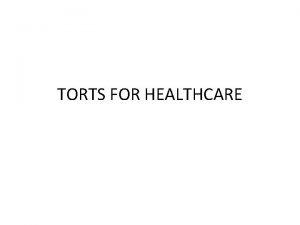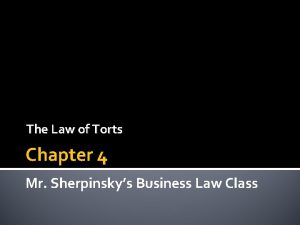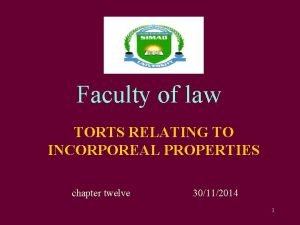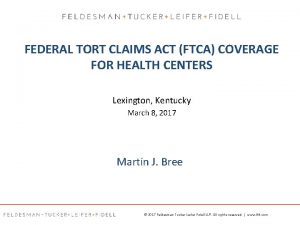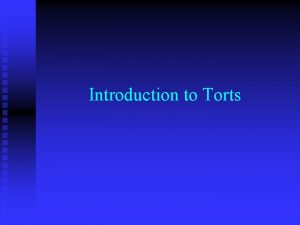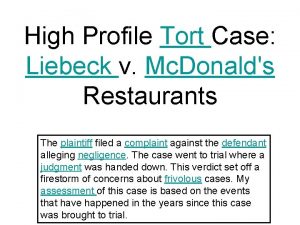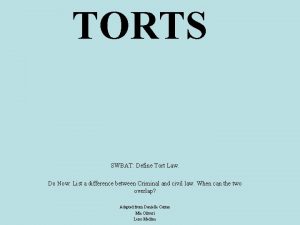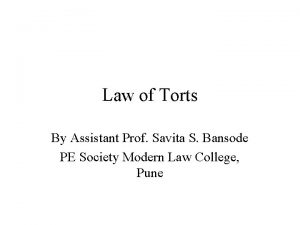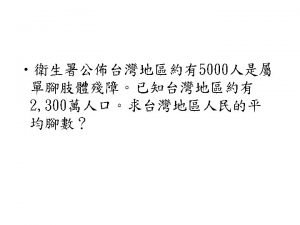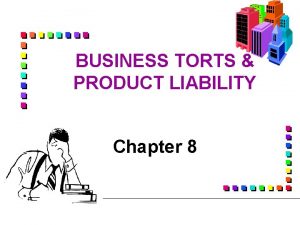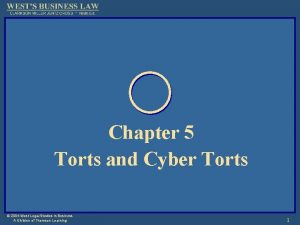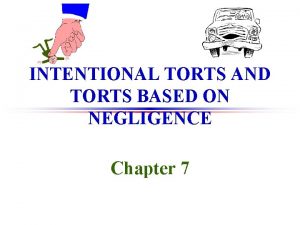Torts Kinds of Torts l There are two











- Slides: 11

Torts

Kinds of Torts l There are two kinds of torts: intentional and negligent.

Two Basic Questions l There law: n Who are two basic questions in tort should be liable for the harm caused? n What should be the damages/remedy?

Who can be sued? l Individuals, groups, organizations, corporations, and (sometimes) the government are potential defendants. l Plaintiffs look for defendants with “deep pockets. ”

Who can be sued? l Parents can be sued for negligence in supervising children. l Certain groups are immune from liability (in general children may not sue their parents).

Who can be sued? l The Federal Tort Claims Act allows people to sue the government for negligence (but not intentional torts). l Class action lawsuits may be brought by a group of similarly situated plaintiffs.

Limiting Exposure to a Lawsuit l Insurance contracts require the company to pay for damages caused by the insured. They may also cover damage caused by uninsured motorists. l Malpractice insurance covers professionals, such as doctors and lawyers, from negligence damages. It does not cover intentional torts.

Limiting Exposure to a Lawsuit l Unemployment insurance sets a schedule that workers can recover for injuries on the job. This is an exclusive remedy (the employee may not sue for damages)

Car Insurance l Medical coverage pays for your own medical expenses, as well as passengers, no matter who is at fault. It amy be limited in the amount of coverage or the kind of expenses covered.

Car Insurance l Collision coverage pays for damage to your own car, even if you were at fault. You probably have a deductible. l Comprehensive coverage protects you from damage to your caused by events other than collision, such as vandalism.

Car Insurance l Uninsured motorist coverage protects you from other drivers who do not have insurance. l No-fault insurance covers drivers for a certain amount, regardless of fault.

